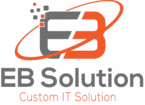Whether you work remotely or in an office, the line between work tasks and personal use can become blurred. If you’re in front of a computer for most of your work, then it’s not very unusual to get attached to your PC.
Over time, it leads to doing personal things on a work computer. At first, it starts with checking personal email while on a lunch break. But as the line gets crossed more and more, it can end up with someone using their work computer for personal reasons even more than work tasks.
In a survey done by Malwarebytes, it was found that only 30% said they never used their work PC for personal activities. Others admitted to using their work computer for personal reasons in varying degrees.
Some of the non-work-related activities people do on their work computers are:
- Reading and sending a personal email
- Checking social media
- Online banking
- Shopping online
- Streaming music/videos/movies
It’s always a bad idea to mix work and personal activities, no matter how much more convenient it is to use your work PC. You can end up causing a data breach at the workplace, causing heavy losses to your company, and probably getting yourself fired.
Here are 5 things you should never do on your work PC.
NEVER SAVE YOUR PERSONAL PASSWORDS
Many people let their browser manage their logins and passwords by allowing it to save and auto-fill them whenever needed. This can be convenient sometimes, but it’s never secure. Should you lose access to that PC, you automatically lose all your login credentials.
When you use a work computer, it can be taken away at any time for many reasons, such as upgrades, repairs, or during an unexpected termination. If you never signed out of the browser and someone else accesses this PC, they can get all the passwords to your cloud accounts, banks, and social media websites.
Many companies store older PCs in a storeroom, but some don’t. There are companies that donate their older PCs to worthy causes. Having your laptop given away to a complete stranger sounds nerve-wracking. At that point, all you can do is hope that your PC was properly wiped by your IT team.
NEVER STORE YOUR PERSONAL DATA
It’s easy to develop a habit of storing personal data on your work computer, especially if your home PC has already run out of storage space. But this habit leaves you wide open to two major problems:
1)Loss of your files: If you lose access to the PC, your files can be lost forever.
2)Your personal files being company-accessible: Many companies save backups of employee devices, which is a common activity to protect against data loss. So, those beach photos or personal text messages you stored on your work PC could be accessible company-wide if they got captured in a backup process.
NEVER VISIT SKETCHY WEBSITES
It’s better to assume that any activity you are doing on a work device is accessible by your boss or manager. Many companies use cybersecurity tools like DNS. It’s designed to protect against phishing websites by filtering your traffic. The same type of software can also send alerts when an employee is visiting a website deemed sketchy or dangerous.
So, a good rule of thumb is that you should never visit a website on your work computer that you wouldn’t be comfortable visiting with your boss looking over your shoulder.
NEVER ALLOW FRIENDS OR FAMILY TO USE IT
When you do your work remotely, it can be hard to keep your friends or family members away from your PC. Often, work PCs are more powerful than a typical home computer, and some may have software installed that employees can’t afford.
Allowing anyone else to use your work computer could be seen as a breach of data protection regulations. Just the fact that the personal data of customers or other employees could be accessed by someone not authorized to do so, can mean a stiff fine and other penalties from regulators.
On top of that, a child or friend not well-versed in cyber-hygiene could accidentally click on a phishing link infecting your work device, which may infect your company’s cloud storage, making your device a gateway for cybercriminals.
20% of companies that have experienced a data breach during the pandemic experienced it due to a remote worker.
NEVER TURN OFF COMPANY-INSTALLED APPS LIKE BACKUPS AND ANTIVIRUS
If you’re trying to get work done and a backup kicks in and slows your PC down, it can be tempting to turn it off. But this may leave the data on your computer unrecoverable in the case of a hard drive malfunction or ransomware attack.
Company-installed apps are there for a reason. And should not be turned off unless given express permission by your supervisor or the company’s IT team. Turning company-provided software off may weaken your cybersecurity and disrupt business continuity and disaster recovery activities.
HOW SECURE IS YOUR DEVICE?
Whether you’re a business owner with multiple remote team members or are a remote employee worried about causing a data breach, device protection is important. Schedule a quick 10-15-minute call and get all your questions answered.
EB Solution is an experienced IT service provider that has been providing IT and network services to businesses in Toronto, Ontario, Canada, and the United States since 2011. We are dedicated to helping businesses get the most out of their IT systems, insure their cybersecurity, and quickly recover in case of a disaster.


